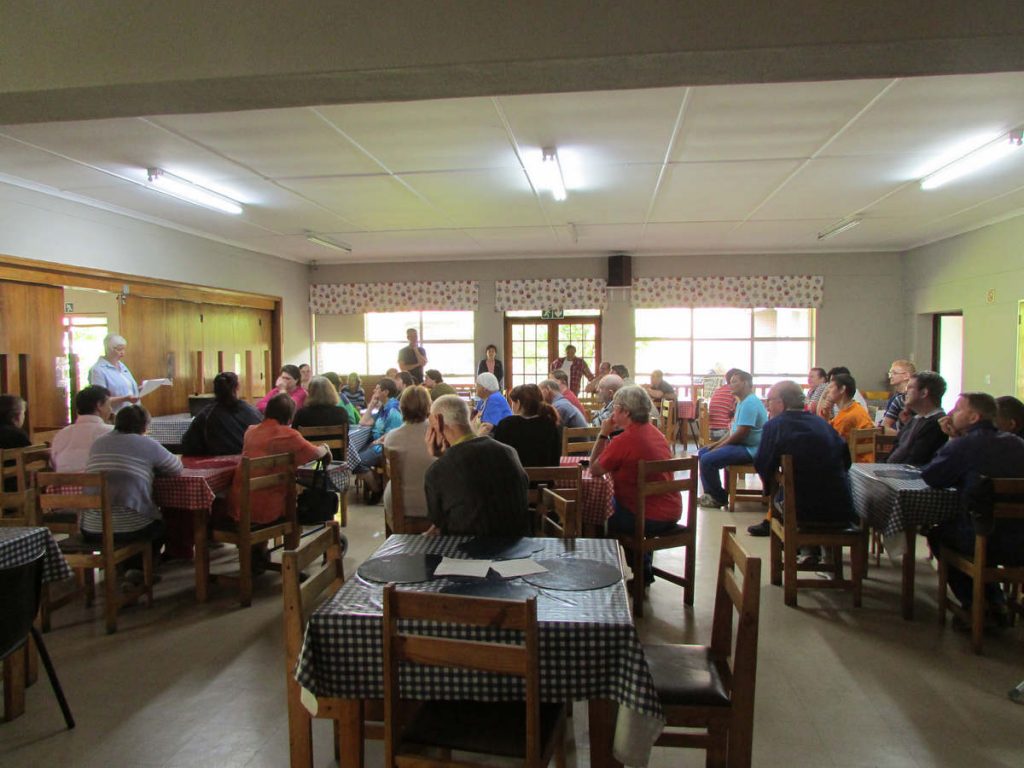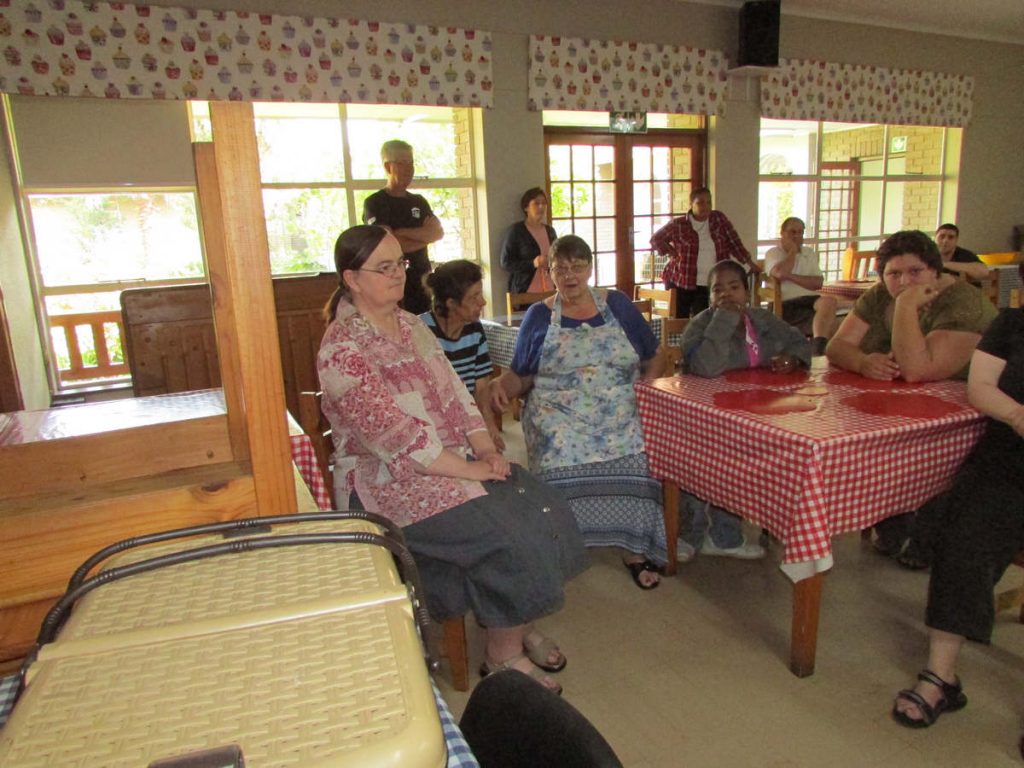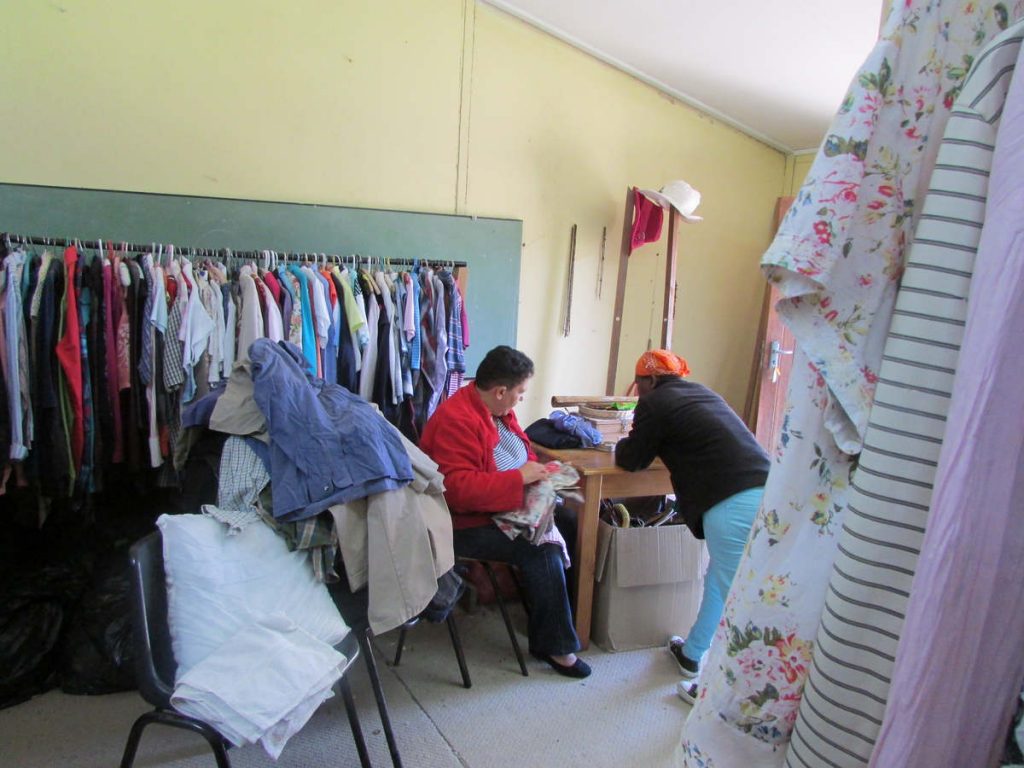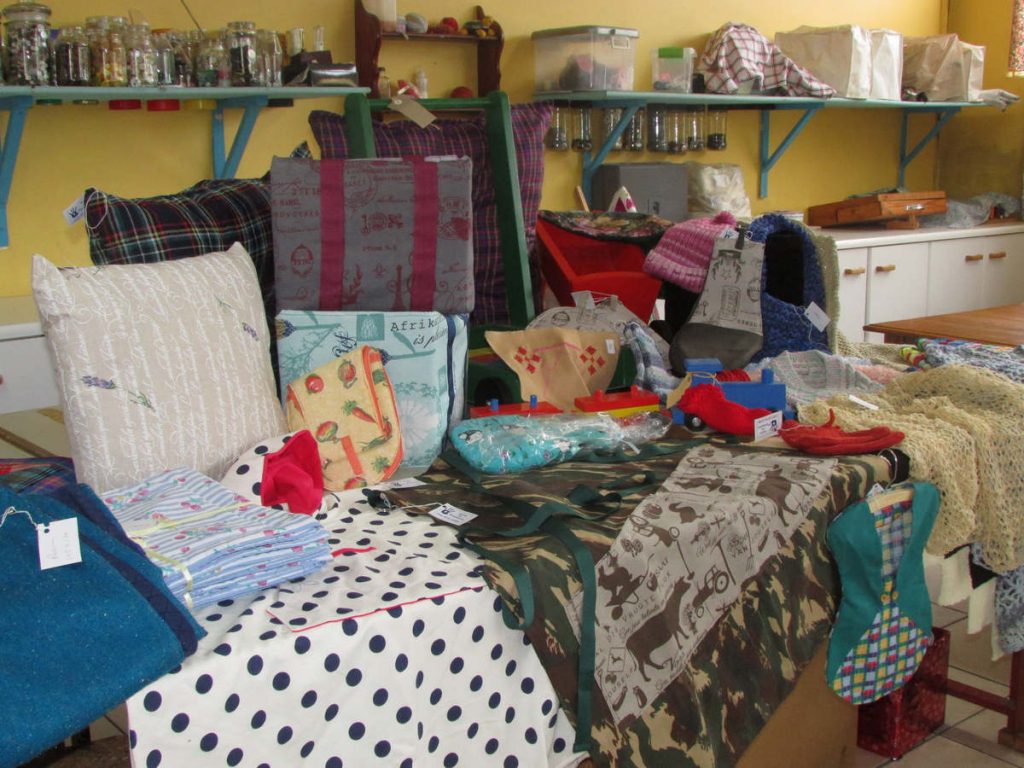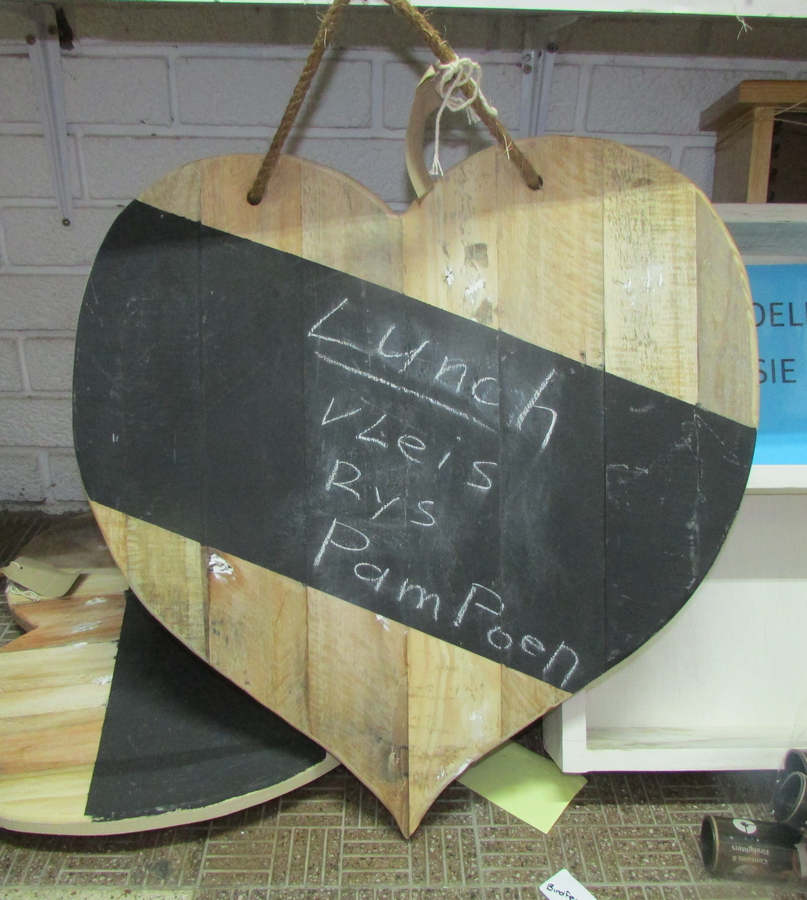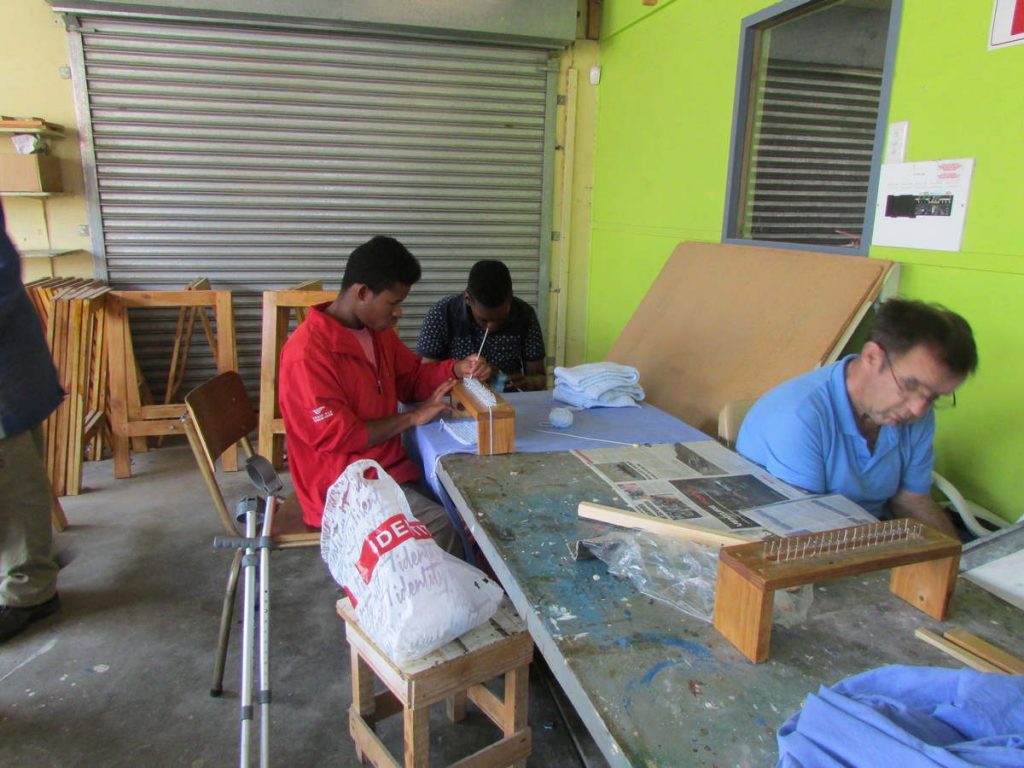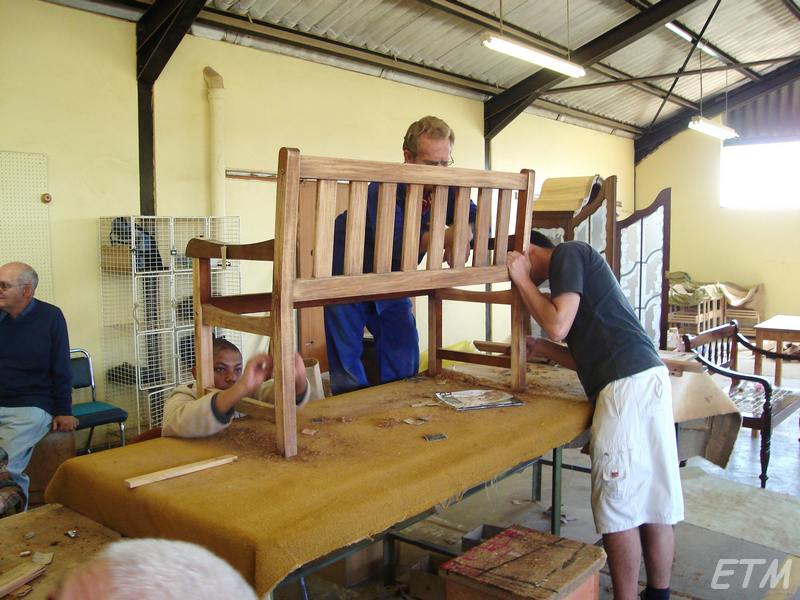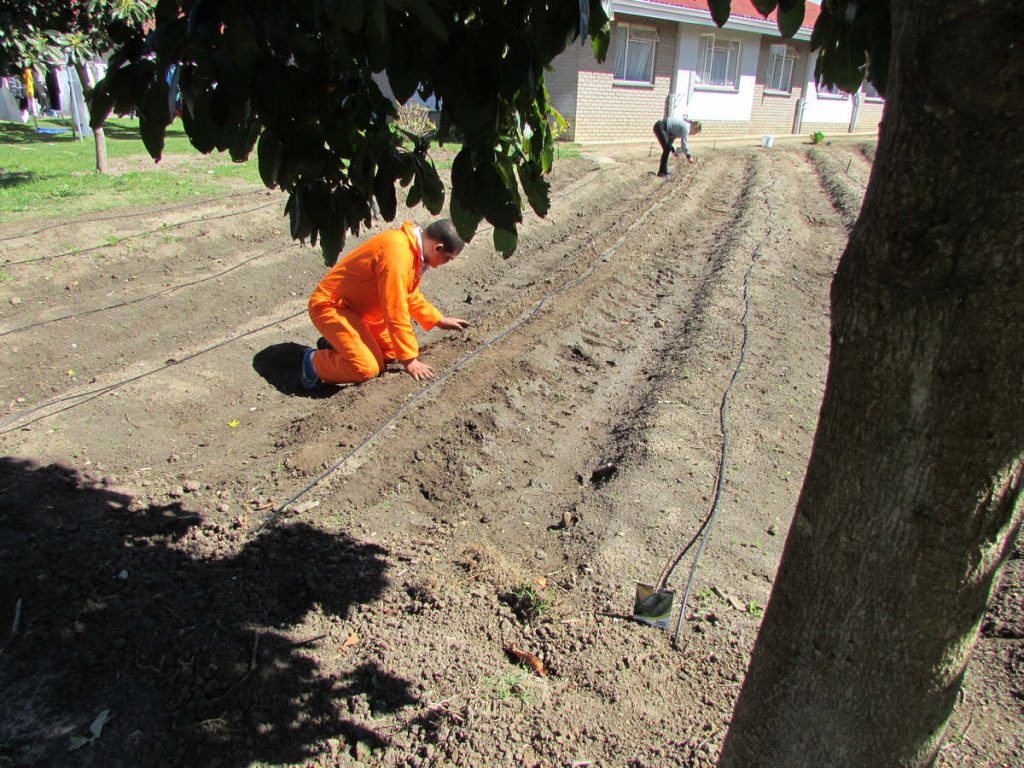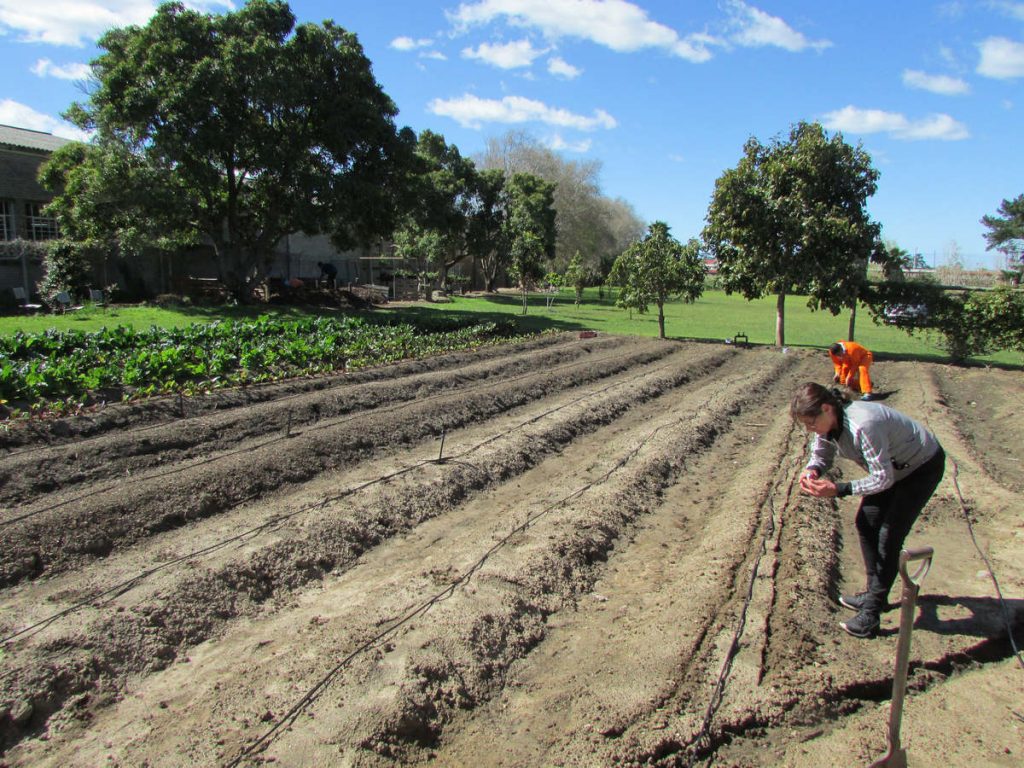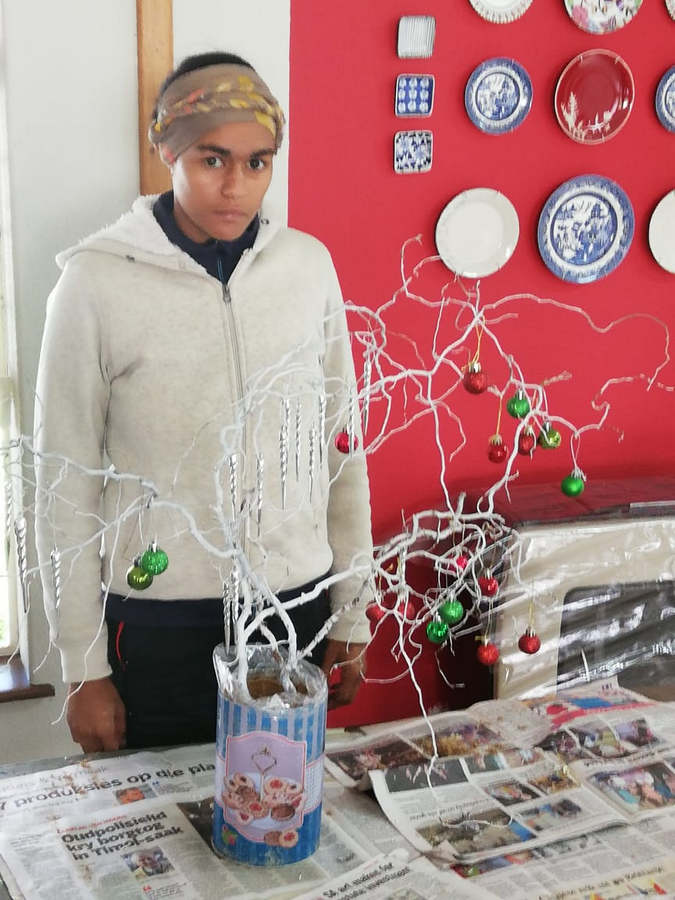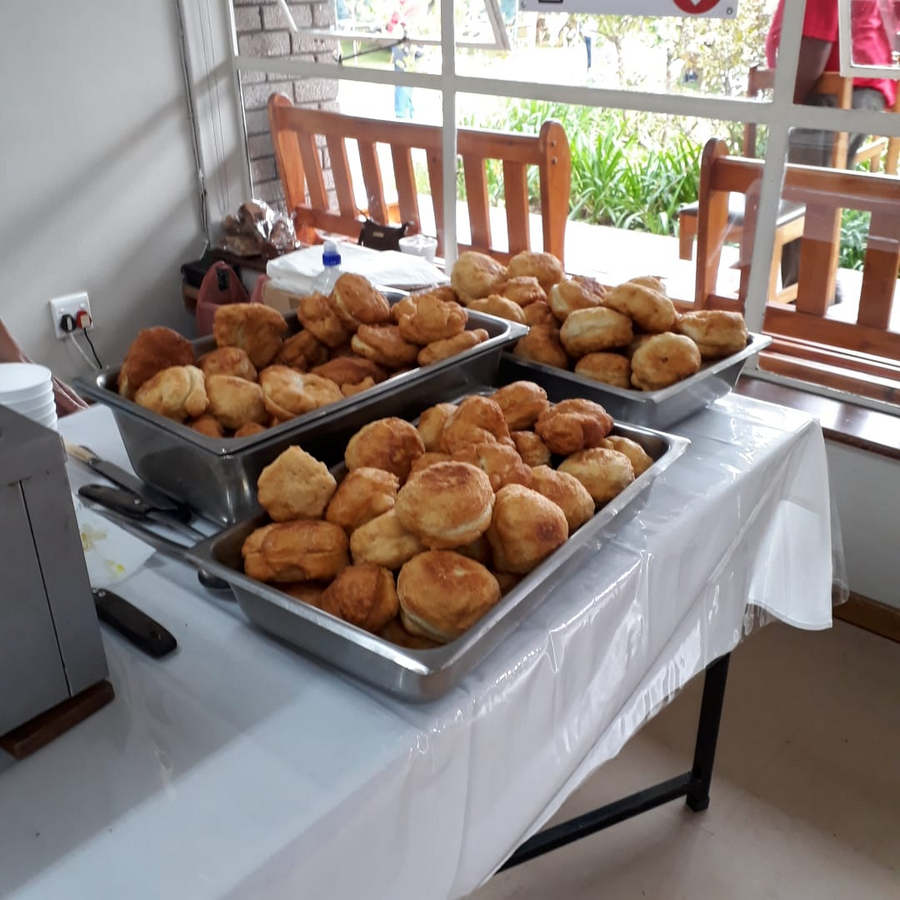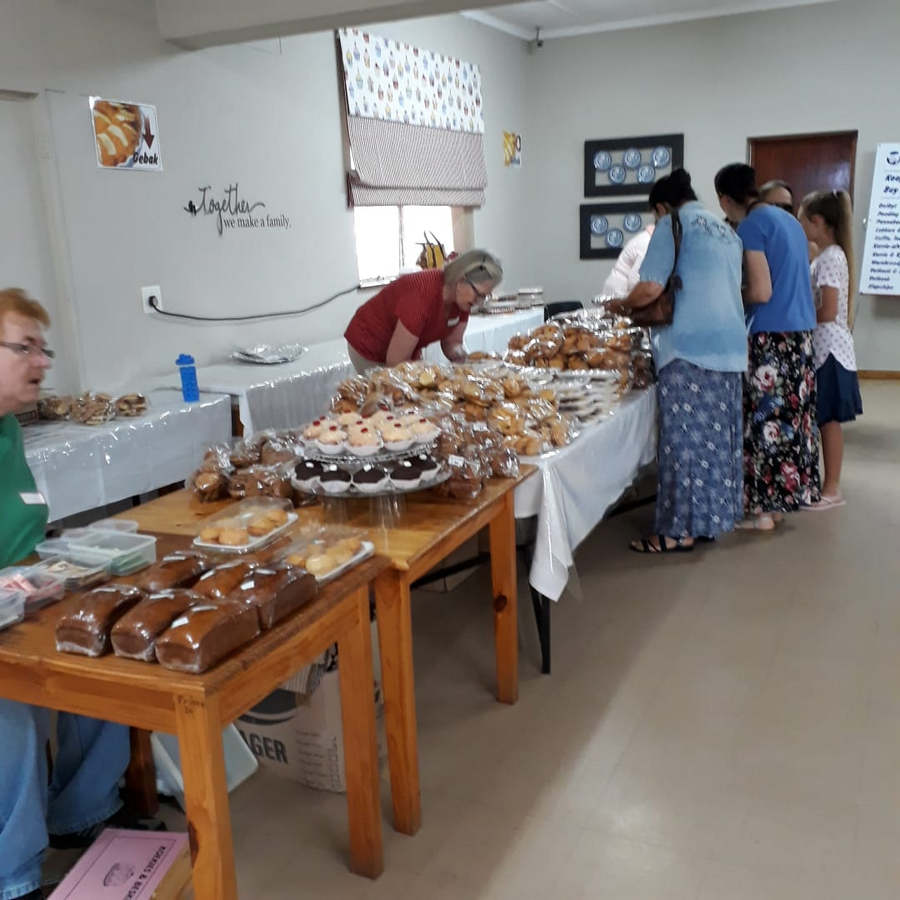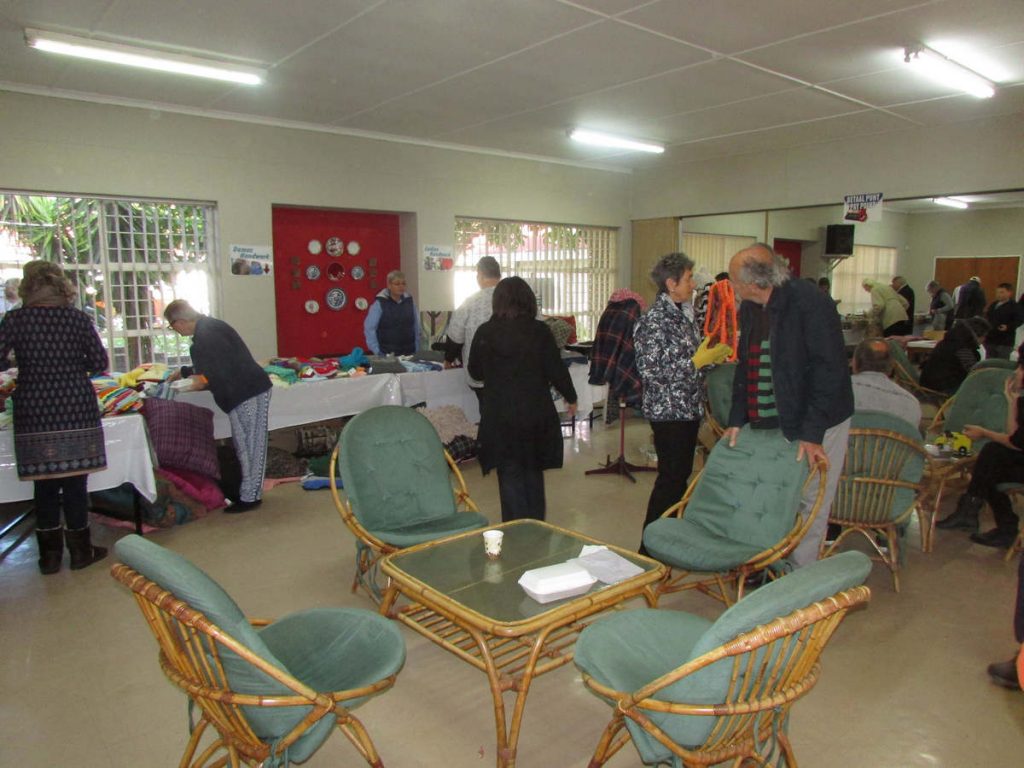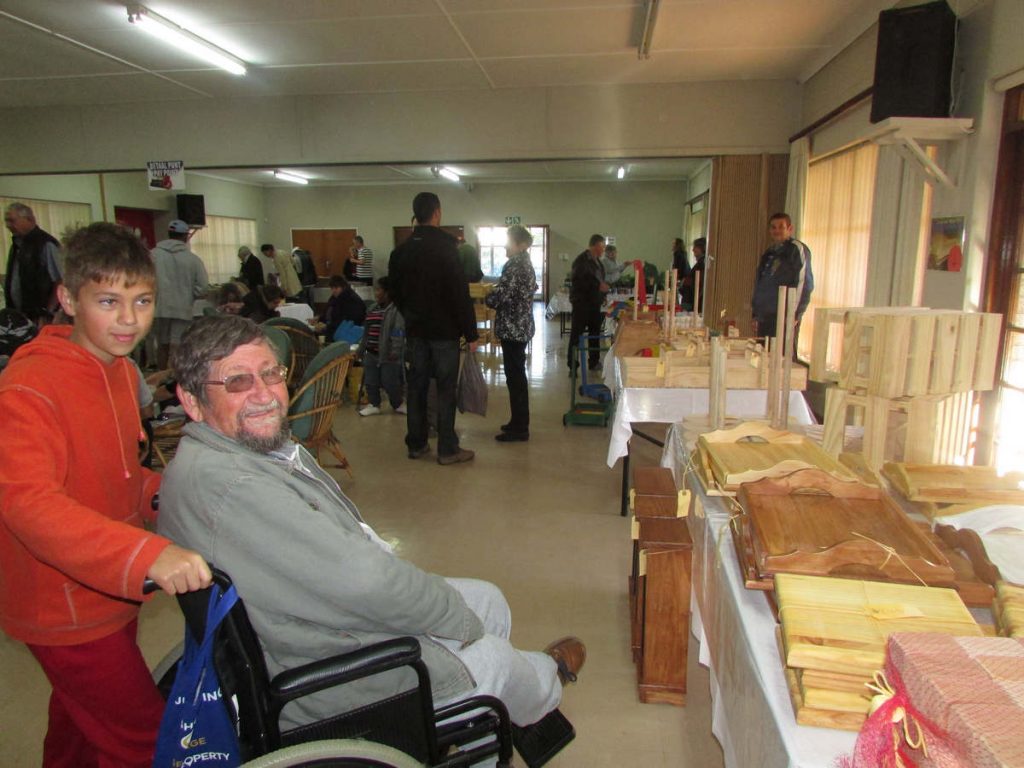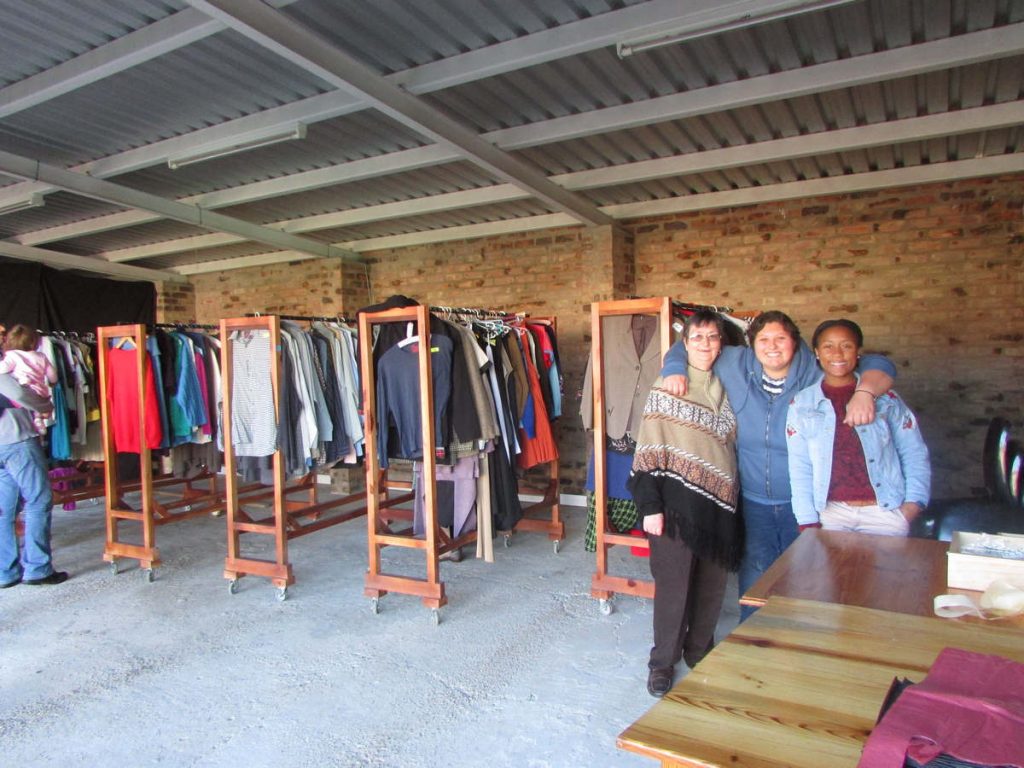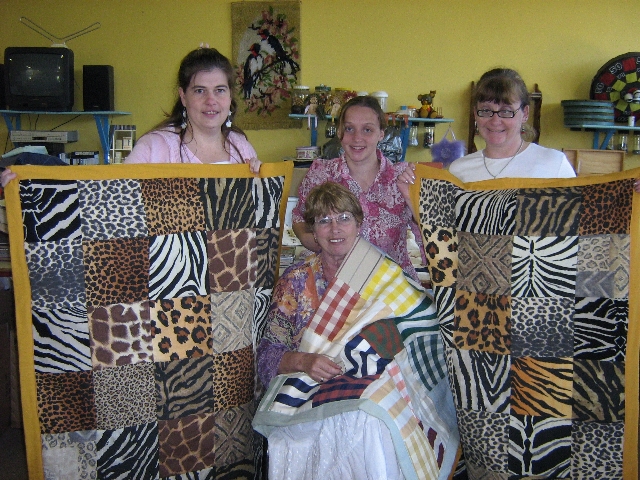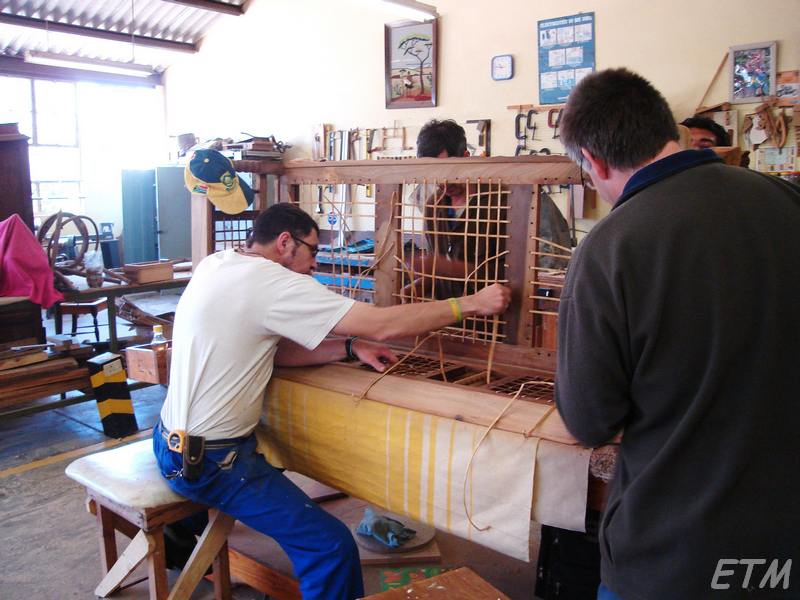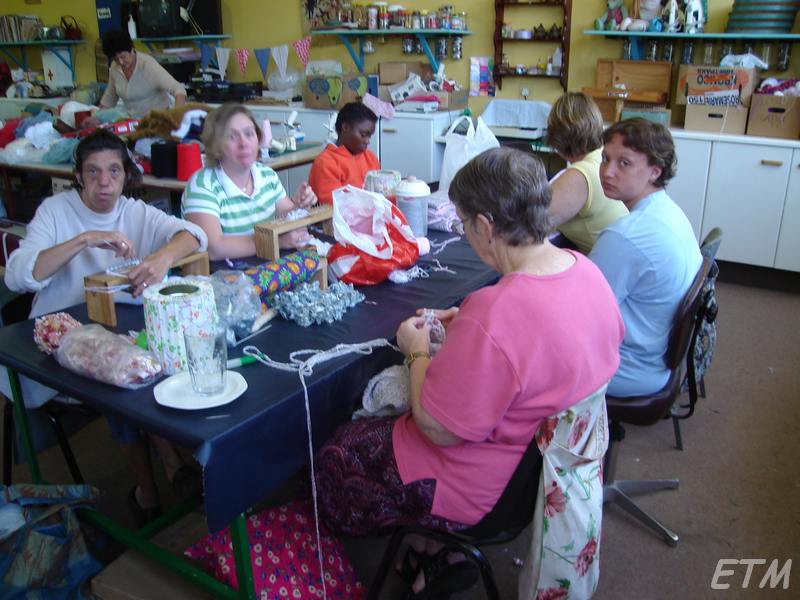GENERAL INFORMATION
Emmaüs Protective Work Centre for adult disabled has approximately 140 beneficiaries receiving daily therapeutic stimulation and care. 48 Beneficiaries live in the hostel on the premises whereas the rest (about 90 ) attend the activities of the work areas on a daily basis. At Emmaüs our aim is to engage as many disabled individuals from the community as possible, since it means establishing skills, self respect and a good self-esteem throught therapeutic stimulation. Parents can work outside in the labour market while their child is being cared for at Emmaüs. We even have 1 recovering stroke patient working in the work areas.
RESIDENTS
48 Residents are being fully cared for 24 hours a day. More than two thirds of our residents are over 40 years of age and suffer from declining health. More than half of above mentioned residents need daily assistance with personal hygiene. The more able and healthy residents do their best to assist, but without much success. It is also not fair to make them responsible for their fellow residents! The appointment of a general care-giver has greatly provided in this need and this is really an indispensable post! Since the general care-giver is also in charge of the laundry, more control and less problems are experienced here and this results in happier residents! Since the need for care and supervision has increased, we had to appoint a second care-giver to help with the residents. The two care-givers also have to supervise the cleaning of the resident’s rooms. They are suppose to be self supportive and clean their rooms on their own, but due to declining health, this is not possible regarding all the residents.
WORK AREAS
The work areas offer therapeutic stimulation and learning of new skills. We try to accommodate all the beneficiaries with their specific needs and problems. To do this, we sometimes have to be innovative and create special means and plans to stimulate some of the beneficiaries. Although the ideal ratio in the work area should be 1:10, we currently work with a ratio of 1:50! This makes it very difficult for the assistant therapists! With the help of volunteers, a therapy area has been established where the lower functioning beneficiaries are stimulated and occupied. The garden group are very proud of their vegetable gardens, since they supply the hostel with vegetables! To stimulate the lower functioning group of men, we have appointed a contract staff member to keep them busy and they paint, create and enjoy themselves.
DAY BENEFICIARIES
Approximately 15 day beneficiaries make use of private transport. The rest are transported twice daily to and from the centre by Emmaüs buses. Day workers are transported from Thembalethu, Lawaaikamp, Rosemoor, Parkdene, Borcherds, Conville, Pacaltsdorp, Protea Park, Rosedale and midtown. Running costs are high due to the fact that the buses each make two trips mornings and afternoon, and we travel approximately 500km per day. Two of our buses have been in use for nearly twenty five years!
More than half of the day beneficiaries do not have access to bathroom facilities at home, or do not have the means or capability to care for themselves etc. Emmaüs therefore provide clean clothes, bath facilities, toiletries, etc.
Due to poverty more than two thirds of our day beneficiaries do not get breakfast at home, or even supper. We therefore provide a healthy balanced meal once daily. We also provide tea and sandwiches in the morning.
Day beneficiaries are mainly being sponsored by the Emmaüs hostels. Very few day beneficiaries contribute financially, due to the fact that Emmaüs serves a community that cannot support itself.
IN CONCLUSION
At every parent/family meeting the parents express their need for the therapeutic stimulation of their children/family members. By offering our services, the parents can generate an income while their children are being cared for at the Centre. Disabled who were abused by the community in the past, are now being cared for during the day and learn to do things for themselves etc. The residents are being cared for on a 24-hour basis and their parents, who are almost all living outside George, know their children are safe and happy.
Although the residents are supposed to be self supportive at admission, their health decline on a daily basis and more than two thirds are not able to care for themselves and look after their personal hygiene. We therefore had to appoint two general care-givers to assist with the cleaning of the rooms, and personal hygiene.
Emmaüs provides for a needy community in George. Day beneficiary parents can earn their living, knowing that their children are being cared for during the day. The residents are being cared for on a 24 hour basis, and their parents, who are mostly living out of town, have peace of mind that their dependants are being well cared for. Disabled from the community are being cared for during the day, they get personal care and therapeutic stimulation.
We are planning several fundraising projects throughout the year and the biggest is our fete/christmas market that takes place yearly in November. (see the year planner). We have also started manufacturing wooden coat hangers – there is a great demand at the moment and we are the only place in George where you can get them!
Our fundraising projects are usually planned not to interfere with other organisations, since we realise that there are a lot of of organisations that must be fed from the community.
Our day beneficiary numbers increase monthly and the need for care and supervision increase daily. Our beneficiaries get older and need more care.
Thank you for giving us a chance to explain our needs and projects to you!

